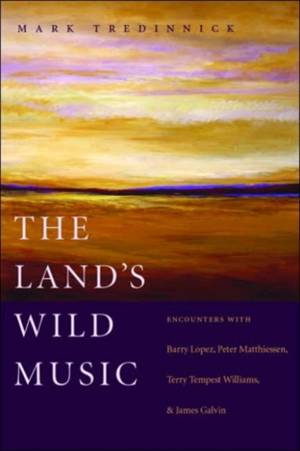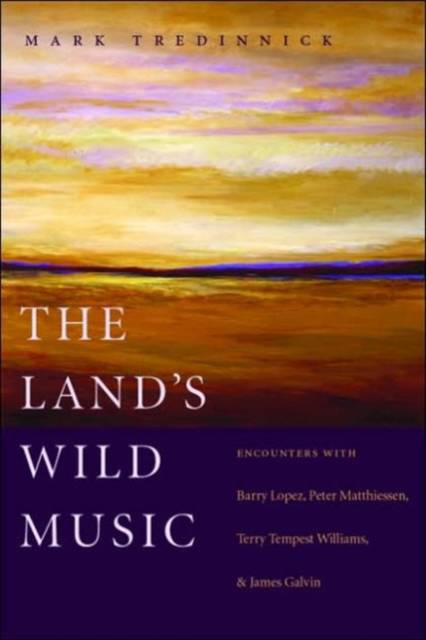
- Afhalen na 1 uur in een winkel met voorraad
- Gratis thuislevering in België vanaf € 30
- Ruim aanbod met 7 miljoen producten
- Afhalen na 1 uur in een winkel met voorraad
- Gratis thuislevering in België vanaf € 30
- Ruim aanbod met 7 miljoen producten
Zoeken
The Land's Wild Music
Encounters with Barry Lopez, Peter Matthiessen, Terry Tempest Williams, and James Galvin
Mark Tredinnick
Paperback | Engels
€ 34,95
+ 69 punten
Omschrijving
The Land's Wild Music explores the home terrains and the writing of four great American writers of place--Barry Lopez, Peter Matthiessen, Terry Tempest Williams, and James Galvin. In their work and its relationship with their home places, Tredinnick, an Australian writer, searches for answers to such questions such as whether it's possible for a writer to make an authentic witness of a place; how one captures the landscape as it truly is; and how one joins the place in witness so that its lyric becomes one's own and enters into one's own work. He asks what it might mean to enact an ecological imagination of the world and whether it might be possible to see the work--and the writer--as part of the place itself. The work is a meditation on the nature of landscape and its power to shape the lives and syntax of men and women. It is animated by the author's encounters with Lopez, Matthiessen, Williams, and Galvin, by critical readings of their work, and by the author's engagement with the landscapes that have shaped these writers and their writing--the Cascades, Long Island, the Colorado Plateau, and the high prairies of the Rocky Mountains. Tredinnick seeks "the spring of nature writing deep in the nature of a place itself, carried in a writer's wild self inside and resonated over and over again at the desk until it is a work in which the place itself sings."
Specificaties
Betrokkenen
- Auteur(s):
- Uitgeverij:
Inhoud
- Aantal bladzijden:
- 384
- Taal:
- Engels
Eigenschappen
- Productcode (EAN):
- 9781595340184
- Verschijningsdatum:
- 29/09/2005
- Uitvoering:
- Paperback
- Formaat:
- Trade paperback (VS)
- Afmetingen:
- 152 mm x 226 mm
- Gewicht:
- 476 g

Alleen bij Standaard Boekhandel
+ 69 punten op je klantenkaart van Standaard Boekhandel
Beoordelingen
We publiceren alleen reviews die voldoen aan de voorwaarden voor reviews. Bekijk onze voorwaarden voor reviews.











